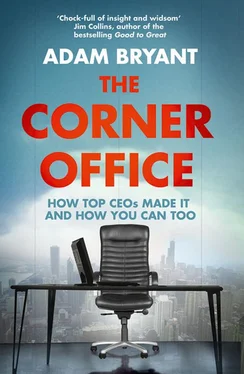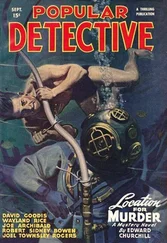Why “passionate curiosity”? The phrase is more than the sum of its parts. Many CEOs will cite passion or curiosity as an important trait in the people they look to hire.
They make persuasive cases for why each is important.
“What I really want to know is what kind of person I’m dealing with,” said Joseph J. Plumeri, the CEO of Willis Group Holdings, an insurance broker. “So I only ask one question. I say, ‘Tell me what you’re passionate about.’ That’s it. What ever you want to talk about. Tell me what you’re passionate about. Digging holes. Riding bikes. I’m looking to see if they’ve got a passion. I’m looking to see if there’s anything inside, other than what they do. And how passionate could they be, therefore, about being here? And how excited and involved could they be? I’m not looking for a mirror image of me. I’m just looking for somebody who gets turned on about something. If you find that kind of person, then these are the people you want to climb hills with and climb mountains with.”
Robert Iger, the CEO of Disney, said curiosity was a key quality he looked for in job candidates.
“I love curiosity, particularly in our business – being curious about the world, but also being curious about your business, new business models, new technology,” he said. “If you’re not curious about technology and its potential impact on your life, then you’ll have no clue what its impact might be on someone else’s life.”
Passion. Curiosity. Both are important. But those words, separately, fall short of capturing the quality that sets these CEOs apart. There are plenty of people who are passionate, but many of their passions are focused on just one area. There are a lot of curious people in the world, but they can also be wallflowers.
But “passionate curiosity”—a phrase used by Nell Minow, the co-founder of The Corporate Library – is a better description of the quality that helps set CEOs apart: an infectious sense of fascination with everything around them.
Passionate curiosity, Minow said, “is indispensable, no matter what the job is. You want somebody who is just alert and very awake and engaged with the world and wanting to know more.”
People with this quality are sponges for information, for insights, wherever they are, what ever they’re doing.
“I think that the best leaders are really pattern thinkers,” said David Novak of Yum Brands. “They want to get better. Are they continually trying to better themselves? Are they looking outside for ideas that will help them grow the business? I look at it in the context of their own personal development. They’re constantly trying to learn how they can become better leaders and they’re constantly trying to learn how they can build a better business. They soak up everything they can possibly soak up so that they can become the best possible leaders they can be. And then they share that with others.”
Though CEOs are paid to have answers, their greatest contribution to their organizations may be asking the right questions – a skill that starts with passionate curiosity.
They recognize that they can’t have the answer to everything – that’s why they hire specialists to handle different parts of their organization – but they can push their company in the right direction and marshal the collective energy of their employees by asking the right questions. That, after all, is where the new opportunities are.
“In business, the big prizes are found when you can ask a question that challenges the corporate orthodoxy that exists in every business,” said Andrew Cosslett, the CEO of InterContinental Hotels Group. “In every business I’ve worked in, there’s been a lot of cost and value locked up in things that are deemed to be ‘the way we do things around here,’ or they’re deemed to be critical to – in the hotel world – a guest experience. So you have to talk to people and ask questions. I just keep asking people, ‘Why do you do that?’ ”
It’s an important lesson. For all the furrowed-brow seriousness and certainty that you often encounter in the business world, some of the most important advances come from asking, much like a per sis tent five-year-old, the simplest questions. Why do you do that? How come it’s done this way? Is there a better way?
“I do think that’s something we forget,” said Tim Brown, the CEO of IDEO, the design consulting firm. “As leaders, probably the most important role we can play is asking the right questions. But the bit we forget is that it is, in itself, a creative pro cess. Those right questions aren’t just kind of lying around on the ground to be picked up and asked. When I go back and look at the great leaders – Roosevelt, Churchill – one of the things that occur to me is they somehow had the ability to frame the question in a way that nobody else would have thought about. In design, that’s everything, right? If you don’t ask the right questions, then you’re never going to get the right solution. I spent too much of my career feeling like I’d done a really good job answering the wrong question. And that was because I was letting other people give me the question. One of the things that I’ve tried to do more and more – and I obviously have the opportunity to do as a leader – is to take ownership of the question. And so I’m much more interested these days in having debates about what the questions should be than I necessarily am about the solutions.”
Jen-Hsun Huang of Nvidia said that his leadership style today is defined by questions rather than answers.
“It’s not possible for the CEO to know everything, but it is possible for us to add value to literally everything,” Huang said. “And the reason for that is, if you’re the CEO, you’re probably better at looking around corners than most. You probably have better intuition than most. You’re probably able to see the forest better than most. You’re probably able to deal with complexity better than most. And so you bring a perspective that is unique. By asking the right questions, you can get to the heart of the issue right away. It’s almost possible now for me to go through a day and do nothing but ask questions and have my sensibility, my perspective and what’s important to me be perfectly clear to everybody without making a statement at all.”
Asking questions. Showing genuine enthusiasm. Being interested in the world. It sounds so simple, yet not everyone displays those qualities, particularly in a business culture that values jutjawed certainty. Top executives who are passionately curious can also spot like-minded people from a mile away. They will pick them out of a crowd, and even hire them on the spot – another sign of how rare this quality is.
“I once hired somebody who wasn’t looking for a job,” said Nell Minow of The Corporate Library. “A guy called to ask me some questions about some corporate governance issue and I just thought he was so bright. I said, ‘I’ll put some materials together for you and put them in the mail.’ And he said, ‘Can I come over and pick them up right now?’ I said, ‘Are you looking for a job?’ And he said, ‘Well, I’m in an internship right now. I just graduated from college and my internship is going to finish up at the end of the summer.’ I told him, ‘If you are looking for a job when the internship ends, I’m going to hire you.’ And I did.”
James J. Schiro, CEO of Zurich Financial Ser vices, said he sometimes picked assistants – to travel with him and help him get things done – just by keeping his eye out for young people who are “smart, bright, energetic.”
“The person who works with me now I met on a road show,” Schiro said. “He was one of the bankers, and I said, ‘I’d like to talk to him.’ He came in, and I said, ‘Philippe, how would you like to work for me?’ He said, ‘Doing what?’ I said, ‘I don’t know. I’ve watched you. You understand this industry. You know more about this industry than I do, and you can just work for me for a year, and then after that year, somebody in this organization will hire you.”
Читать дальше












